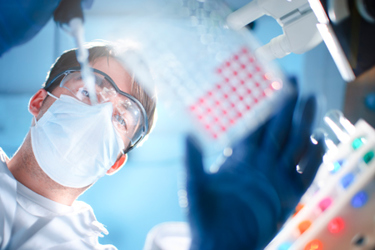Metabolic Phenotype Preservation And Suitability Of Human Mesenchymal Stem Cells Cultivated In Stirred Tank Bioreactors

A collaborative study by researchers from Eppendorf Application Technologies and Promega Corporation explores the expansion of human adipose-derived stem cells (hADSCs) in stirred-tank bioreactors—a critical step in improving cell therapy manufacturing. By utilizing microcarrier-based culture systems, this research demonstrates how bioreactors can support high-density cell expansion while maintaining metabolic stability and stem cell functionality.
The study was conducted across six independent BioBLU® 0.3c Single-Use Bioreactors, confirming consistent cell growth and metabolic activity. Key findings highlight the importance of balancing glycolysis and oxidative phosphorylation to preserve cell quality during large-scale production. This work provides valuable insights into optimizing bioprocessing for mesenchymal stem cells, addressing challenges in scalability and cost-efficiency for regenerative medicine applications. The methods presented could help streamline the transition from lab-scale research to industrial-scale manufacturing.
For a detailed examination of the experimental approach, results, and implications, download the full application note.
Get unlimited access to:
Enter your credentials below to log in. Not yet a member of Cell & Gene? Subscribe today.
